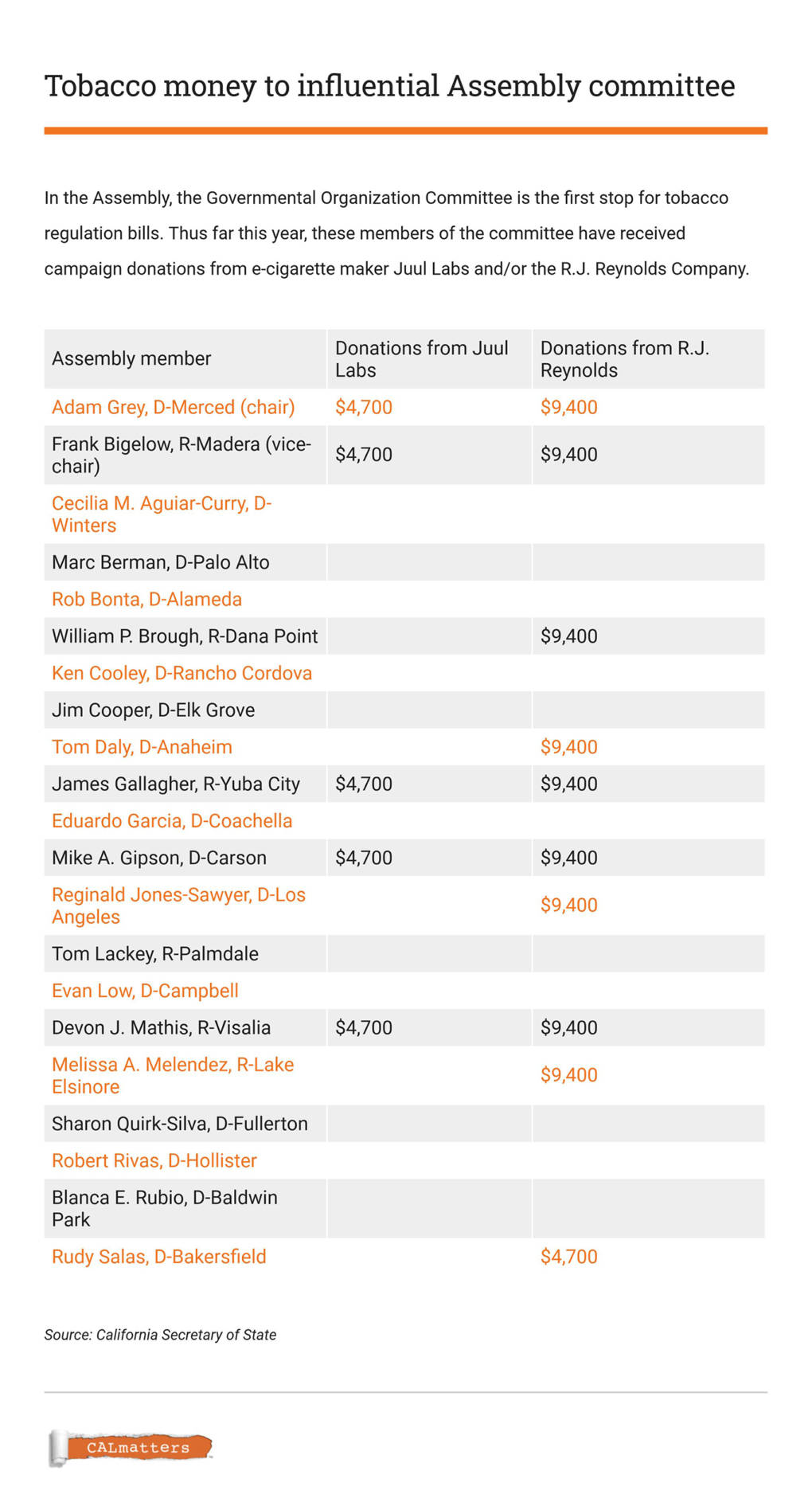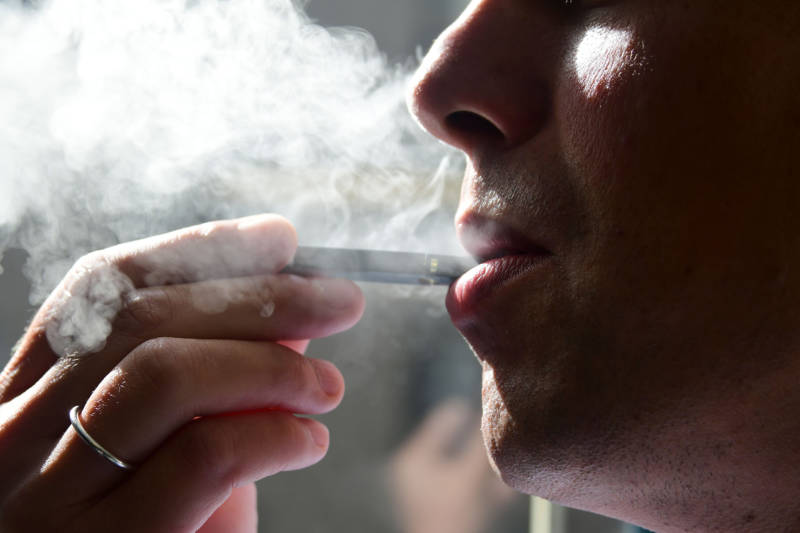Another possibility: The vaping industry might agree to weaker state restriction if the Legislature simultaneously preempts stricter local bans. It’s the same strategy the soda industry used last year, when it escaped city soda taxes by convincing the Legislature to pass a statewide prohibition on local soda taxes.
So far, at least 26 counties and cities have restricted flavored tobacco in some fashion, after Hayward became the first by prohibiting its sale within 500 feet of schools. San Francisco banned its sale entirely — and city voters then overwhelmingly rejected a ballot initiative to overturn the ban. Campaign mailers and TV commercials advocating the overturn were required to acknowledge the source of funding behind the campaign to cancel the ban.
“The local campaigns can backfire because the more they do, the more you know it’s paid for by the tobacco industry. And it turns voters off at the local level,” said Larry Tramutola, a campaign consultant who defended the ban. “More money spent at the Sacramento level, who cares? It’s just more money for politicians.”
Gray insisted the contributions are irrelevant to his actions. “If you want to support my agenda, my voting record and the things I stand for, I’m happy to receive that support,” he wrote. “But it has zero role in how I represent my district or how I make decisions on public policy.”
“We need more folks to stand up and say no to the tobacco industry,” said Lindsey Freitas, senior director of advocacy in California for the American Lung Association. “This is how they get the next generation of people addicted to their products, they entice them with these sweet flavors.”
But Greg Conley, president of the American Vaping Association, credited watermelon-flavored tobacco for getting him to quit traditional cigarettes.
“Vaping products are essential to helping adult smokers quit,” said Conley. “Some members may not want to hear this bill because it will shut down multiple small businesses in their districts. This bans 90% of the nicotine-containing products sold at vape shops.”
If the Senate bill, SB 38 introduced by San Mateo Democratic Senator Jerry Hill, passes the full Senate by the end of the month, it will go to the Assembly, where it’s likely to land in Gray’s committee. That’s the same committee where a similar ban on tobacco-flavored products, Assembly Bill 739 introduced by Sacramento Democratic Assemblyman Kevin McCarty, stalled without even a vote. McCarty declined to be interviewed about his bill.
So far this year, Governmental Organization committee members have received $23,500 from Juul Labs, the maker of e-cigarettes and flavored pods, in political contributions. Those members have also taken in $89,300 from the R.J. Reynolds Tobacco Company, which makes the popular Newport brand of menthol cigarettes. In addition, the “Valley Solutions Ballot Measure Committee,” an initiative committee Gray controls, took in $25,000 from Philip Morris, a tobacco subsidiary of Altria, last year. Altria also has a stake in Juul Labs.
“Our philosophy,” Juul spokesman Ted Kwong wrote in an email, “is to support people and organizations to improve the lives of the world’s one billion smokers and to combat underage uses we keep Juul products out of the hands of young people.”
Last year, the U.S. Surgeon General issued an advisory about youth use of e-cigarettes, calling out Juul for making an e-cigarette that looks like a sleek USB flash drive.
“We must take aggressive steps to protect our children from these highly potent products that risk exposing a new generation of young people to nicotine,” the advisory said.
Last year, use of e-cigarettes among middle and high schoolers soared 78% over the year before, according to the federal Centers for Disease Control. The agency reported that more than 1 in 5 students were now using them. The popularity of e-cigarettes alone drove a 36% annual rise in tobacco use among those students.
Juul contends it has never intended for its products to be used by youth. The company said that in the fall, it stopped selling its flavored product through retailers and now offers them only online, which it says is more secure because of a third-party age verification process.
And the company has been working to educate legislators about its youth prevention efforts, emphasizing that it is focused on adult smokers who are using vaping to quit combustible cigarettes. Juul has been running full-page ads in The Sacramento Bee and prominent ads in Politico’s California newsletter, both read by Sacramento insiders.
The company also said it is being mixed up with other smaller players that make candy-flavored pods, which can be used in Juul’s USB-looking vape pens. Juul makes four flavors: mint, mango, creme and fruit.
“While we do not and will not sell flavors which are clearly targeted to youth, we also understand that flavors that drive adults from cigarettes have the potential to appeal to youth,” said Kwong in an email.
Sen. Hill said in an email that his focus is on the Senate floor vote, and that he remains “committed to protecting children and teens from the health risks of flavored tobacco products.”

